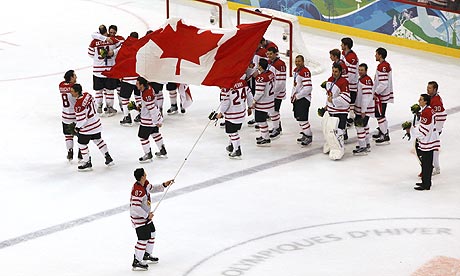Fresh Start
Banned
Own the Podium has definitely succeeded. We're third in the world behind two nations we had no prospect of betting anyway in overall medals accumlated, a mere 11 behind the top-ranked nation. And we still have our climactic hockey finals against the USA to look forward to. Why all the self-deprecation and inferiority complex? 13 gold medals is very impressive for any one country and makes all the hype surrounding the Vancouver Games truly have paid off for most Canadians. Literally, this has been the most-talked about sporting event in Canada for the past several years and it would've been somewhat of a letdown had our athletes not been determined to be patriotic and give it their all. Heck, one athlete had just lost her mother to cancer only days before she had to compete and yet she won bronze. That's the remarkable Canadian spirit at work and something I absolutely refuse to crap on.





